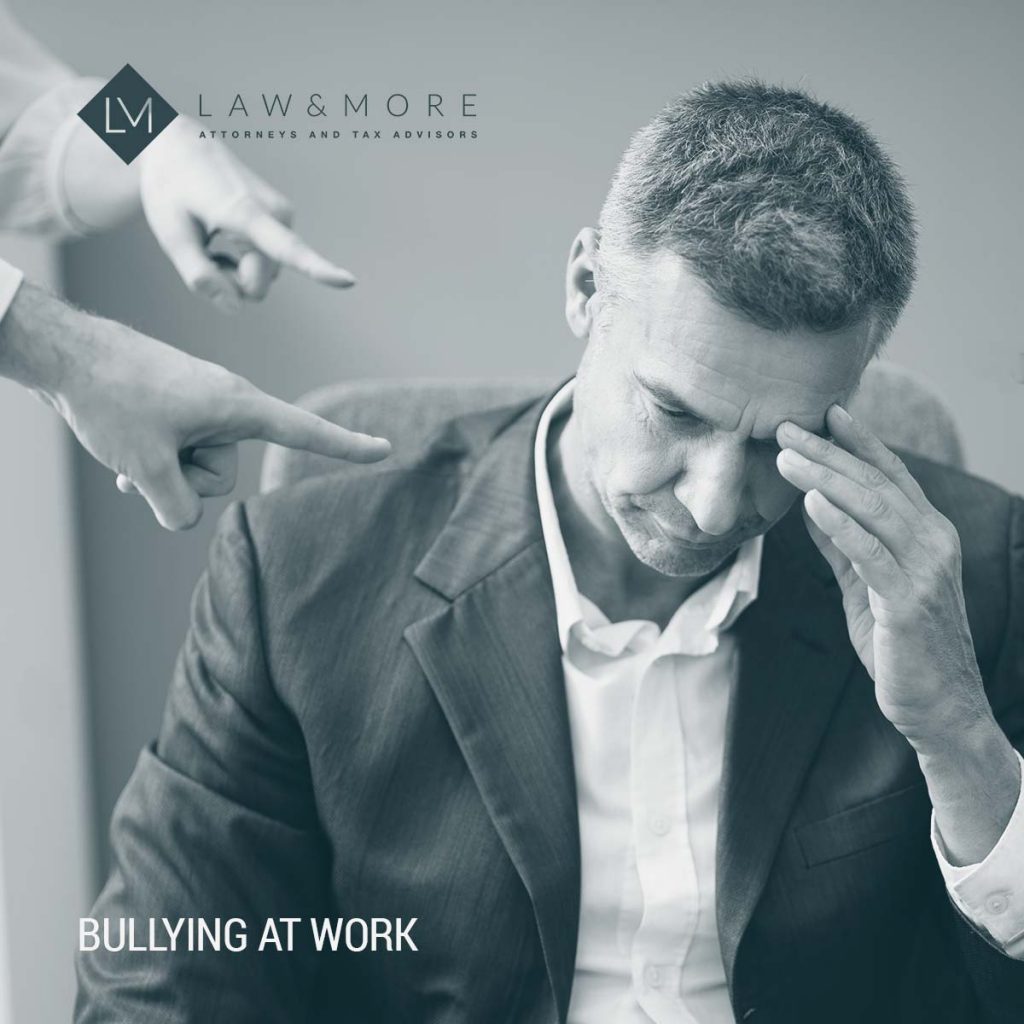Bullying at work is more common than expected
Whether neglect, abuse, exclusion or intimidation, one in ten people experience structural bullying from colleagues or executives. Nor should the consequences of bullying at work be underestimated. After all, bullying at work not only costs the employers four million extra days of absenteeism per year and nine hundred million euros in continued payment of wages through absenteeism, but also causes employees physical and mental complaints.
So, bullying at work is a serious problem. That is why it is important for both employees and employers to take action at an early stage. Who can or should take what action depends on the legal framework in which bullying at work should be considered.
First, bullying at work can be classified as a psychological workload within the meaning of the Working Conditions Act. Under this law, the employer has a duty to pursue a policy aimed at creating the best possible working conditions and preventing and limiting this form of labour tax. The way this must be done by the employer is further elaborated in article 2.15 of the Working Conditions Decree. This concerns the so-called Risk inventory and evaluation (RI&E).
It should not only provide insight into all risks that may arise in the company. RI&E must also contain an action plan in which the measures relating to the identified risks, such as the psychological workload, are included. Is the employee unable to view the RI&E or is the RI&E and therefore the policy within the company simply missing? Then the employer violates the Working Conditions Act.
In that case, the employee can report to the SZW Inspection Service, which enforces the Working Conditions Act. If the investigation shows that the employer has not complied with his obligations under the Working Conditions Act, the Inspectorate SZW can impose an administrative fine on the employer or even draw up an official report, which makes it possible to conduct a criminal investigation.
In addition, bullying at work is also relevant in the more general context of Article 7: 658 of the Dutch Civil Code. After all, this article also relates to the employer’s duty of care for a safe working environment and stipulates that in this context the employer must provide measures and instructions that are reasonably necessary to prevent his employee from suffering damages. Clearly, bullying at work can lead to physical or psychological damage. In this sense, the employer must therefore also prevent bullying in the workplace, ensure that the psychosocial workload is not too high and ensure that the bullying stops as soon as possible.
If the employer fails to do so and the employee suffers damages as a result, the employer acts contrary to good employment practices as referred to in Section 7: 658 of the Dutch Civil Code. In that case, the employee can hold the employer liable. If the employer then fails to demonstrate that he has fulfilled his duty of care or that the damage is the result of intent or deliberate recklessness on the part of the employee, he is responsible and must pay the damage resulting from bullying at work to the employee.
While it is conceivable that bullying at work cannot be completely prevented in practice, the employer can thus be expected to take reasonable measures to prevent bullying as much as possible or to combat it as early as possible. In this sense it is, for example, wise for the employer to appoint a confidential adviser, to set up a complaints procedure and to actively inform the employees about bullying and the measures against it. The most far-reaching measure in this matter is dismissal.
This measure can be used not only by the employer, but also by the employee. Still, taking it, certainly by the employee himself, is not always wise. In that case, the employee risks not only his right to severance pay, but also the right to unemployment benefit. Is this step taken by the employer? Then there is a good chance that the dismissal decision will be contested by the employee.
At Law & More, we understand that workplace bullying can have a major impact on both the employer and the employee. That is why we use a personal approach. Are you an employer and would you like to know exactly how to prevent or limit bullying in the workplace? Do you as an employee have to deal with bullying at work and do you want to know what you can do about it? Or do you have any other questions in this area? Please contact Law & More. We will work with you to determine the best (follow-up) steps in your case.
Our lawyers are experts in the field of employment law and are happy to provide advice or assistance, including when it comes to legal proceedings.
